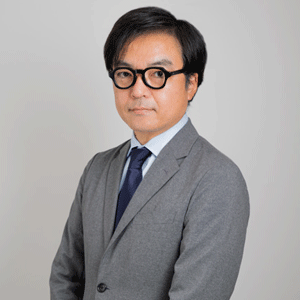
Today, the sheer increase in the number of hair implantation treatments, the rise in the frequency of alopecia, and technological innovation in the hair transplant sector are all driving the growth of the niche hair implantation device/solution space. Speaking of technology, it is encouraging to witness the utilization of state-of-the-art technologies in the medical device industry.
However, there is a dire need for more Japanese companies to actively enter the global market. Numerous small and medium-sized companies in Japan possess excellent technologies, but many of them focus solely on the domestic market. It is crucial for such companies to collaborate with overseas-focused enterprises or partner with international companies to gain more exposure to the global market.
One such noteworthy player in the Japanese medical device industry who has proven over and again its mettle is Nido. With over 50 years of operation, Nido has carved a niche for itself as a pioneer in introducing the first generation of artificial hair (AH) implantation - the N-Type method - back in 1972. This idea was presented to the Japanese Ministry of Health and Welfare in June 1975, and AH Technology was then made available to the general public. Following two additional generations of updates, the AH Technology was included in the current fourth generation - the Z-Type technique.
“With this, we have set a benchmark for others to follow with the development of this method; a breakthrough innovation in the field. This hair implant model utilizes monofilaments implanted into the scalp and fixed, providing an effective solution for individuals experiencing hair loss”, says Kuni Hikichi, President & Representative Director at Nido.
Nido’s artificial hair implantation, as opposed to hair transplant, is a medical treatment in which hair-shaped artificial resin monofilaments are implanted into the scalp one by one using a specialized hair implanting instrument. Nido’s alpha-shaped root form keeps the artificial hair firmly attached to the scalp. Artificial hair is stronger than real hair but does not last forever on the scalp like natural one does not. When the alpha-type hair root comes out for whatever cause, it unravels and becomes a single monofilament that can be totally pulled out of the scalp.
As a result, it is a safe design that can prevent a portion of it from lingering on the scalp and generating problems like inflammation.
Growth Story
The journey of Nido began with the founder, Dr. Yamada, who personally experienced baldness at a young age and sought a resolution. After several iterations and collaboration with fellow doctors, the first-generation artificial hair implant was introduced in 1972. In line with its commitment to quality and hygiene, Nido manufactures its hair implant products at a factory that has acquired ISO13485 certification, the international standard for medical device quality control systems. This certification ensures that Nido’s products are at par with rigorous quality standards, providing reassurance to both healthcare professionals and patients.
Another groundbreaking offering is an insulation needle hair removal solution which was jointly developed by Dr. Yamada and Dr. Kobayashi. Nido’s partially insulated needle electrodes come in a variety of needle sizes, both large and small, to accommodate all hairs on the human body. A customized electrosurgical device for the insulated needle electrodes allows for ultra-mild electrocoagulation via Joule heat created by tissue electrical resistance at low voltage and high current. Because the electrocoagulation heat does not penetrate the epidermis, there are no scars from burns on the skin’s surface, and electrocoagulation can only kill the target hair growth tissue.
With over 50 years of operation, Nido has carved a niche for itself as a pioneer in introducing the first generation of artificial hair (AH) implantation solutions
Personalized Approach
Nido takes orders from medical institutions and distributes the products, ensuring a seamless experience for both healthcare providers and patients. Moreover, Nido’s client engagement process involves collaborating with clinics that specialize in artificial hair implants and needle hair removal. These clinics undergo training and acquire the necessary surgical techniques before performing the treatments on patients. The expertise of Nido’s team plays a crucial role in the company’s growth. Managers in each section involved in production and sales also serve as internal auditors for ISO13485. Their comprehensive knowledge of quality control enables the delivery of safe and high-quality products to customers, highlighting Nido’s commitment to excellence.
“Going forward, we will be constantly expanding our services portfolio by focusing on sales promotion in overseas markets, primarily in Asia. While the company already exports its products internationally, the domestic market remains a significant portion of its sales. By tapping into emerging markets and increasing its global presence, we aim to further strengthen its position as a leading player in the medical device industry”, concludes Kuni Hikichi.
Kuni Hikichi, President & Representative Director
Kuni Hikichi, an accomplished graduate from PSU with a major in psychology, embarked on a journey that took him across industries upon his return to Japan. With invaluable experience in diverse sectors including the toy industry, electrical equipment industry, and medical device industry, he now stands poised to continue the legacy established by Nido while simultaneously forging new paths in untapped markets. Leveraging his extensive knowledge and expertise gained through years of hands-on experience, Kuni Hikichi aspires to embrace the challenges of diverse business ventures, driving growth and success with a strategic and innovative approach.
We use cookies to ensure you get the best experience on our website. Read more...